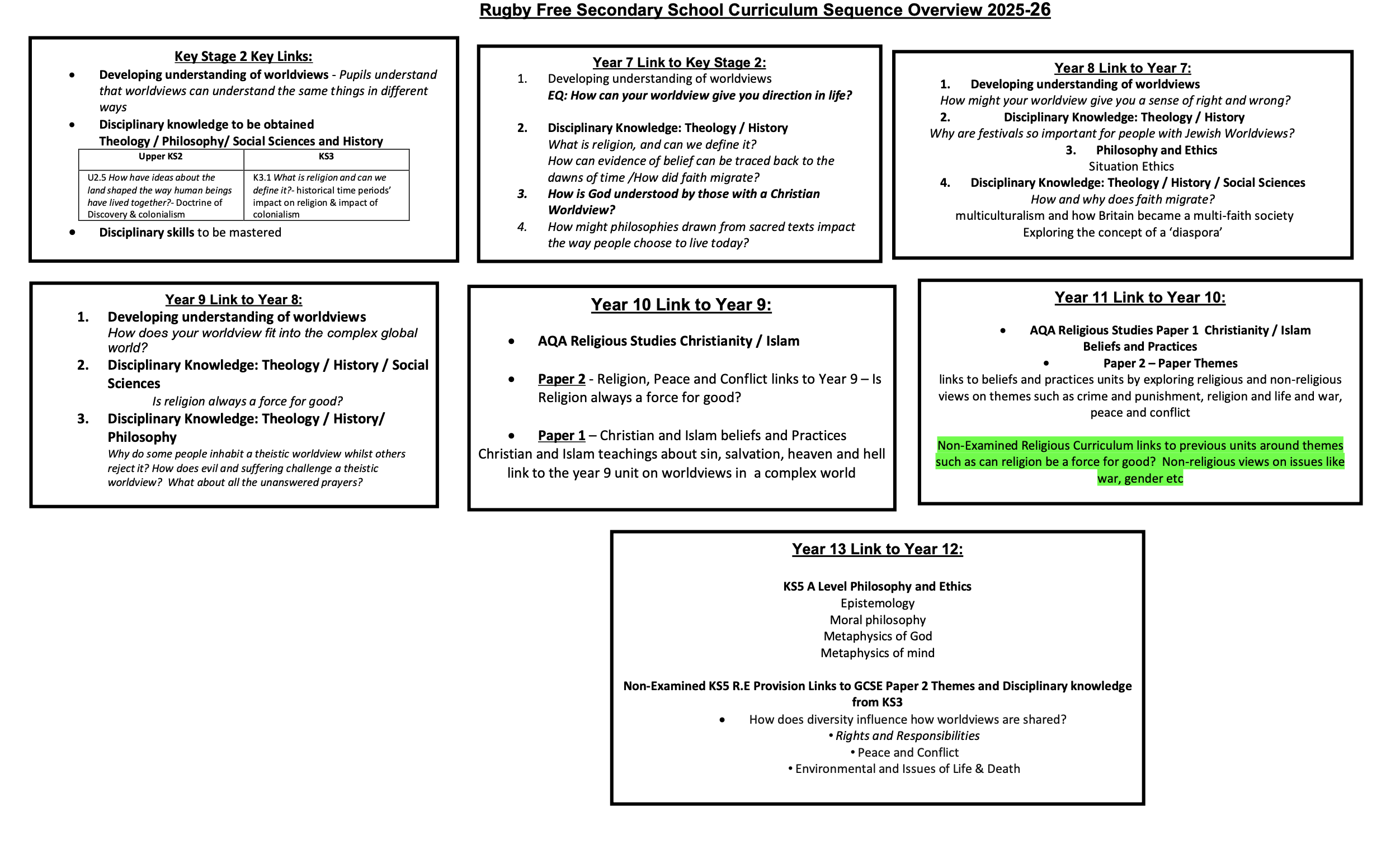RE Department – Overarching Curriculum Intent (June 2025)
RFSS Curriculum Vision Statement:
We intend to provide a broad, inclusive and ambitious curriculum that empowers our students to make both academic and personal progress. As a school with a rich demographic, our aim is to ensure that all students achieve an excellent standard of education that not only prepares them for GCSE and A Level, but ensures they are ‘set for life’ beyond the gates of Rugby Free Secondary. As a consequence, all of our work is underpinned by our core values of: Kindness, Respect, Curiosity, Resilence, Collaboration and Endeavour.
Religious Education Curriculum in Context:
‘When you understand religion, you see the world in full technicolor. All works of Art, literature, paintings, poems, films and books trace their origins to religious stories’
Nikki McGee – Curriculum Conversations
The teaching of R.E is going through a metamorphosis, with a sharper focus on supporting our students in developing their own worldview and in turn understanding the world view of others. Throughout their curriculum journey, we aim to provide opportunities for our students to reflect on the lens through which they view the world around them, allowing our students to explore questions of spirituality, identity, ethics, discrimination and prejudice. We will enable pupils to develop religious literacy and an understanding of what it means to be a person of faith or no faith. We will encourage pupils to engage critically with ideas and experience of religion, belief and spirituality and in turn understand their own personal worldview. Our R.E curriculum endeavours to teach Religious Education not as a survey of world religions but as a “deep dive” into Religion and Worldviews of many kinds. It shifts the emphasis from simply explaining the beliefs and practices of the major world faiths to exploring through academic disciplines the complex picture of religion and non-religion in the 21st century. This necessarily involves every pupil in considering at regular intervals their own personal or worldview.
This has been achieved by building the KS3- KS5 curriculum around our Coventry and Warwickshire agreed Syllabus but also by reflecting on the experiences and context of our school community. With consideration of the following features,
- The character of our school community (as below) has been carefully considered alongside the national and international context in which we live. For example,
- 60% of students at RFSS are White British, compared to 65% in Secondary schools across the country.
- 28% of students speak a language other than English as their home language.
- 50 different languages are spoken within our school.
- After English, the most common home languages are Polish and Romanian

